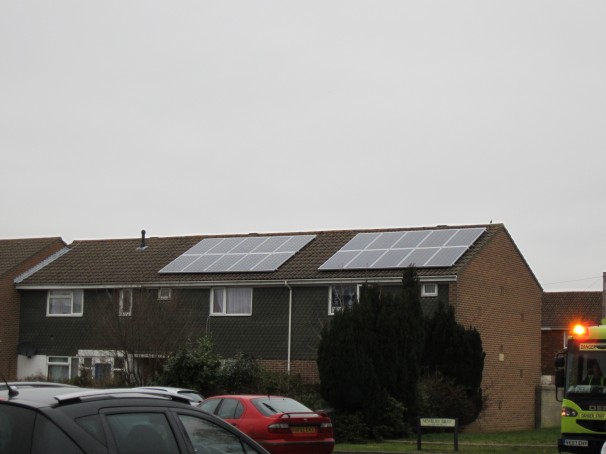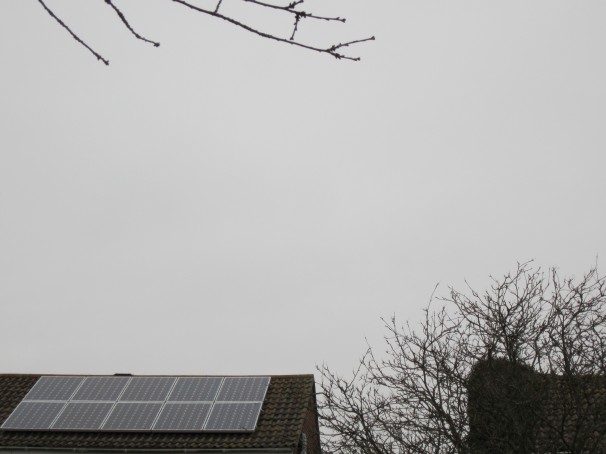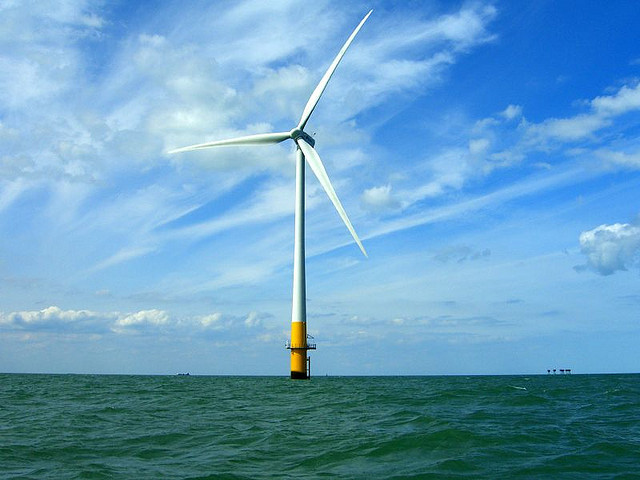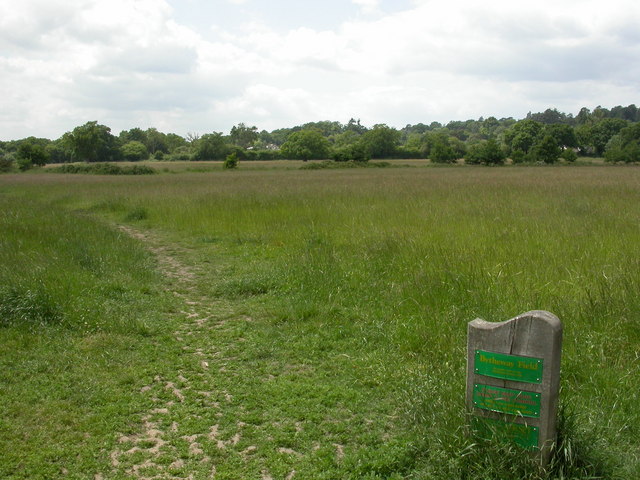Icy puddles melt and dribble away into the gutter as Dorset emerges from a cold snap. Some residents will have agonised over whether to fire up their central heating or brave the chilling temperatures of their own homes, trying to solve the dilemma of cost versus comfort. For a fortunate few, however, there is no problem.
Solar energy, over time, pays for itself: Even the reduced daylight hours of the winter months are enough to sustain a domestic property, often with energy to spare. The benefits are plain to see for those living on a budget and for the long term concern of environmental sustainability. Plus, energy that is not used will be bought back by the Government; solar users could potentially earn a small amount of money over time. If that sounds too good to be true, console yourself with the knowledge that you are not the only one who has noticed the potential earning power of solar energy.

As of December 12, 2011, the government altered its feed-in tariff for domestic solar energy systems, reducing the price a tenant receives per kilowatt hour (kWh) from 43.3p to 21p. All other energy generated is owned by the government and, if not used by the owner of the solar panels, is diverted back into the national grid. The change means that photovoltaic (PV) users are now paid for up to 5% of the energy they generate, a substantial plunge from the previous rate of 8-10%.
This drop in profits from adopting a sustainable lifestyle has affected the Bournemouth/Poole conurbation; those who were looking to invest in solar energy for their homes are being forced to think twice, which is reducing the trade for local businesses. Bournemouth Borough Council’s green agenda (PDF link) is creaking under financial strain. The question is, which should we prioritise- financial prudence or a sustainable future?
The Save Energy Group, a sustainable energy business based in Poole, hope to accomplish both: “We are going to have to cut our costs for our customers”, director Mike Davies explained: “They are only going to go for a PV system if they are making a reasonable return from their investment.
“We feel that by working our figures harder we can get our customers an 8-10% return, but we don’t want the government thinking; ‘if they can work with an 8-10% customer return we can knock [the tariff] down even further’.”
Bournemouth resident Beverley Rogers agreed that a stronger financial incentive was needed for people to adopt sustainable living. “My partner looked into it”, she said, “but now it’s not worth investing in. Paying off the cost of the installation now takes two or three years.
“I’m one of the lucky ones”, Miss Rogers said: She lives in a Bournemouth Council house which was fitted with solar panels as part of their drive towards sustainability targets. However, financial concerns have impacted on the plans of the local authority to deliver photovoltaic technology to their properties.
The council have only continued their solar installation plans by proxy, due to a non-negotiable outsourcing contract. Bournemouth UNISON secretary David Higgins said that, in the wake of the tariff changes: “The authority has said to them ‘we don’t need so many fitted now, can you stop’. It’s not in [Council] interests now.”
Uncertainty over the tariff changes on larger, non-domestic installations, such as schools, has meant some proposed work being postponed. Robert Lawton, Bournemouth cabinet minister for housing & the environment, said that solar panels proposed in October 2011 were “more or less complete; Primarily on council houses and council buildings, and the schools have already started to do their own.”
The Bournemouth council press release from October 2011 focused on two schools, Kingsleigh Primary and Heathlands Primary, as benefactors of solar energy, although transformation work has not yet begun. Jenny Tarrant, a secretary at Heathlands primary, revealed: “We haven’t actually had them installed yet. We are probably talking months I would think.”
As larger installations are delayed, domestic systems were fast-tracked in early December to beat the tariff change. “Mine was rushed through before the 12th,” Miss Rogers said, and Mike Davies from the Save Energy Group had an extreme tale to tell.
In the month before the government tariff reduction, the company “fitted 3 months of installs in 4 weeks. We went from doing 8-10 installs a week to 25-30 installs per week.” The contracts for the work, he said, were agreed at the 43.3p p/kWh rate, and the company did not want to lose them. Since then, he said, business has tailed off.

Conversely, Bournemouth council have committed to fitting more panels thanks to the decline in solar cell sales driving wholesale prices down. Councillor Lawton told me: “The business case isn’t too bad so we are looking to go ahead with another batch. The 43p is obviously more attractive, but because the price of panels has actually dropped it is still financially viable.”
Despite the fine balance between the prosperity of local industries, political authorities, and consumers, all are agreed that solar initiatives should go towards supporting the most vulnerable members of the Bournemouth community- the elderly. The unpredictability of colder weather, coupled with the expense of utilities, can threaten lives. “[Solar energy] is good for pensioners”, Councillor Lawton said, “Because it is virtually free electricity, before it was costing them so much.”
Miss Rogers agreed that it was imperative to protect the elderly from the plummeting winter temperatures in the northern hemisphere: “People in South Africa, for example, can live without electricity and survive because the climate is warmer.” She dismissed the reduced tariffs as “a quick chance for the government to make a quick buck.”
Casualties of recession are common but varied: Small businesses in growth industries, council plans for sustainability and credibility, and, most importantly, people who are threatened by the rising cost of living. “There is not much good news in this recession”, Councillor Lawton said, adding that he was “proud and pleased” that Bournemouth Council could continue its push toward sustainability, which hopefully will not come at the expense of the Save Energy Group, or other local businesses. Mr Davies remained upbeat: “We’re making less profit to make it work,” he said, “But we still want to grow a solar industry.”
Main image: Mark Wilson









